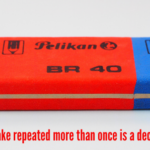I’m thrilled to announce that Bedard Law Group is the new sponsor for the Compliance Digest. Bedard Law Group, P.C. – Compliance Support – Defense Litigation – Nationwide Complaint Management – Turnkey Speech Analytics. And Our New BLG360 Program – Your Low Monthly Retainer Compliance Solution. Visit www.bedardlawgroup.com, email John H. Bedard, Jr., or call (678) 253-1871.

Every week, AccountsRecovery.net brings you the most important news in the industry. But, with compliance-related articles, context is king. That’s why the brightest and most knowledgable compliance experts are sought to offer their perspectives and insights into the most important news of the day. Read on to hear what the experts have to say this week.
Appeals Court Vacates Arbitration Award to Deal With Standing
The Court of Appeals for the Ninth Circuit has vacated a lower court’s conformation of an arbitration award in favor of a defendant that was sued for violating the Fair Debt Collection Practices Act during the course of a lawsuit filed against the plaintiff in state court to collect an unpaid debt. More details here.
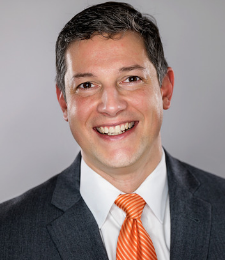
WHAT THIS MEANS, FROM DENNIS BARTON OF THE BARTON LAW GROUP: Davis v. Mandarich Law Group is a class action case where Plaintiff alleged an FDCPA violation because Mandarich Law Group (“Mandarich”) filed declarations that did not conform with California Code of Civil Procedure. The plaintiff lost and appealed. The Ninth Circuit decided to vacate the defense verdict and remand to allow the district court to determine whether it had standing to hear the case in the first place.
While this is bad news for this individual defendant in this individual case, I see it as very good news overall. Taking a broader view of this case, it is a positive sign for the industry when the Ninth Circuit places importance on standing in an FDCPA case. In Davis, the court found, “[t]here is a serious question whether Davis has adequately alleged an injury in fact—or whether she could do so if given leave to amend her complaint.”
We want courts to think this way and push back on the ridiculous claims of consumers nationwide alleging that ticky-tack violations do anything other than thrill their consumer attorneys who were the ones that actually identify the purported violations and pushed the consumer to file suit.
A footnote on the first page of the opinion expressly stated, “this disposition is not appropriate for publication and is not precedent.” While this case may not be legal authority, it serves as a nice indication this circuit court is willing to apply Spokeo to FDCPA cases and find an absence of standing. The Ninth Circuit will probably continue to break our hearts with decisions that run counter to both expectation and common sense, but we should have some optimism about the ever-growing strength and legitimacy of the Spoeko standing defense in FDCPA cases.
THE COMPLIANCE DIGEST IS SPONSORED BY:

Appeals Court Expands ATDS Definition Under TCPA
The Court of Appeals for the Eleventh Circuit has offered a lesson in grammar and statutory construction to set the record straight — at least within the boundaries of its judicial realm — on what defines an automated telephone dialing system within the context of the Telephone Consumer Protection Act. In doing so, the Court affirmed a lower court’s ruling in one case and partially affirmed and partially reversed a lower court’s ruling in a second case involving collection calls. More details here.
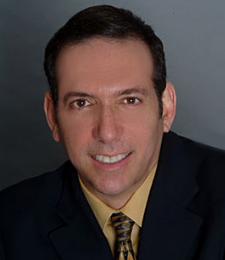
WHAT THIS MEANS, FROM DAVID KAMINSKI OF CARLSON & MESSER: Glasser is an excellent decision from the 11th Circuit Court of Appeals, and will be potentially influential on other federal appellate courts that are or will examine what constitutes an automatic telephone dialing system (“ATDS”) under the TCPA. (Think Gadelhak pending in the 7th Circuit). Now we have a Federal Circuit Court of appeal decision holding that the phone system at issue is not an ATDS because the system required human intervention in order to launch any calls. The 11th Circuit here is consistent with approximately 10 other Federal District Court decisions that have held the same with regard to the human intervention issue.
Glasser also held that in interpreting what constitutes an ATDS under the statutory language of the TCPA, a system does not constitute an ATDS unless it can randomly and sequentially generate numbers to be called. Since the phone system at issue did not have such capacity, it did not constitute an ATDS. In this regard, the 11th Circuit is consistent in interpretation with the 3rd Circuit Court of Appeals in Dominguez v. Yahoo, Inc., 894 F.3d 116, 119 (3d Cir. 2018). The 11th Circuit also specifically stated that it declined to follow the ATDS interpretation from the 9th Circuit Court of Appeals in Marks v. Crunch San Diego, LLC, 904 F.3d 1041, 1049 (9th Cir. 2018). Alas, we have a three way federal circuit court of appeal split: 3rd and 11th vs. 9th Circuit. Usually, this is the perfect type of storm that can set up potential Supreme Court review on the ATDS issue. (Note: Facebook has filed a petition for review of the ATDS issue with the Supreme Court arising out of the 9th Circuit’s Duguid v. Facebook, Inc., 926 F.3d 1146, 1152–56 (9th Cir. 2019) case.) And, with the Supreme Court set to review the constitutionality of the TCPA in William P. Barr et al. v. American Association of Political Consultants, Inc. et al., No. 19-631, the Supreme Court may look beyond the one issue presented and may wind up examining the entire statute.
The twists ands turns involved with the TCPA never end … or will they?
U.S. Goes After Telecom Companies For Aiding Robocall Scammers
For the first time, the U.S. government has filed a lawsuit against alleged perpetrators of robocalls, seeking restraining orders to stop them from facilitating more fraudulent phone calls. More details here.

WHAT THIS MEANS, FROM VIRGINIA BELL FLYNN OF TROUTMAN SANDERS: For the first time, the Justice Department has filed a lawsuit against robocallers, seeking restraining orders against five companies that are accused of helping to facilitate hundreds of millions of illegal robocalls each month. The companies named in the lawsuit are Tollfreedeals.com, Global Voicecom Inc., Global Telecommunication Services Inc., and KAT Telecom Inc., and are accused of scamming elderly Americans. Specifically, the defendants are accused of operating Voiceover Internet Protocol (VoIP) operations and acting as “gateway carriers,” purportedly making them the entry point into the U.S. for foreign crime syndicates. While the FCC has been slow on its orders as well as its enforcement efforts, the FTC and now the DOJ are picking up steam, taking companies to task for the scams that are hurting every-day Americans and well-meaning companies. Ultimately, this action should serve as a warning to other telecom providers, particularly U.S.-based companies, who in engage in revenue sharing with other companies that could potentially engage in aggressive or predatory activity – whether the telecom provider is aware of it or not.
Judge Denies Counterclaims in TCPA Suit Because They Could Deter Other Plaintiffs From Suing
A District Court judge in California has granted a plaintiff’s motion to dismiss counterclaims filed by a defendant that is accused of violating the Telephone Consumer Protection Act by using an automated telephone dialing system to make collection calls to the plaintiff after consent to contact him had been revoked. More details here.

WHAT THIS MEANS, FROM MITCH WILLIAMSON OF BARRON & NEWBURGER: In Castillo v. J.P. Morgan Chase Bank, N.A., 2020 U.S. Dist. LEXIS 15804 (N.D. Cal. Jan. 30, 2020) the Court went beyond what was necessary to rule on the question before it for no apparent reason other than it could. The facts are simple, the Plaintiff brought a claim for TCPA violations against Chase Bank which was trying to collect a sum due it. Chase decided to file a counterclaim for “breach of contract, account stated, and quantum meruit.” Plaintiff moved to dismiss the counterclaim. Two different issues, two different sets of operative facts. A ruling on one does not affect a ruling on the other. The Complaint complains about how the Bank tried to collect its money. It does not attack the validity of the debt. And the counterclaim focuses on the merits of the collection claim. The reverse is also true. When a debtor tries to bring a counterclaim for an alleged FDCPA etc violation. This case provides some good law for those facing a counterclaim in a collection suit.
But what makes this case noteworthy is that the Court did not leave it at that.
“Allowing Defendant to pursue its collection action against Plaintiff here may deter future plaintiffs from bringing TCPA claims.” Castillo at *9 (N.D. Cal. Jan. 30, 2020) Judge Gilliam went on to write “The amount of attorneys’ fees for a case in federal court could easily eclipse the amount of the underlying debt. And the specter of such fees could deter future plaintiffs from filing TCPA actions.”
The Judge’s premise is wrong for two reasons. First, it would actually probably be more economical to resolve the counterclaim within the same litigation rather than have a second suit. Second, In most cases the last thing most Plaintiff’s attorneys want to do is defend a collection case (unless of course it’s prior to the federal suit the attorney needs to keep his gravy train, I mean client, happy) since they can’t really bill for it, thus leaving the majority of Plaintiff’s to proceed pro se.
I keep trying to understand why the court felt the need to go beyond what should have been a short and sweet decision. Then again, it is Northern California.
Judge Denies MTD and MSJ in FDCPA Case, But Leaves Door Open for Defendant to Refile MSJ After Discovery
A District Court judge in Michigan has denied a defendant’s motion to dismiss as well as a motion for summary judgment, but has left the door open for the defendant to refile a summary judgment motion once discovery has concluded in a case in which the plaintiff is accusing the defendant of violating the Fair Debt Collection Practices Act by attaching the wrong documents in a lawsuit filed by the defendant to recover an unpaid debt. More details here.
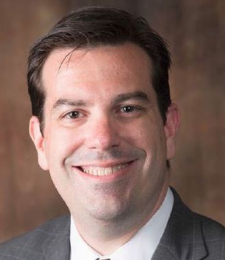
WHAT THIS MEANS, FROM JUDD PEAK OF FROST-ARNETT: The Loewe case is a good example showing that a court will give a consumer – even one represented by an attorney – every benefit of the doubt. The entirety of the plaintiff’s claims are based on the collection agency’s mistake in attaching the wrong loan document to its collection lawsuit. The two loan documents signed by the consumer were virtually identical, and the loan account numbers only differed by one digit, so the error seems reasonable. This sounds very much like a “no harm, no foul” situation, but the consumer based her federal claim on that one clerical error.
The court first rejected the collection agency’s Spokeo “standing” defense. It ruled that the consumer could suffer concrete damages (here, a combination of anxiety and legal costs) from having to potentially defend a collection lawsuit if in fact the loan (debt) is not owed. Next, the court rejected the agency’s contention that the consumer did not state a valid legal claim, by assuming that all of the consumer’s contentions were valid without much in the way of evidence. In both issues, the court declared that the collection agency could ultimately prevail and the consumer’s FDCPA lawsuit should be dismissed. However, the court effectively gave the consumer one last bite at the apple to prove her case, and withheld final determination until after all discovery had occurred. This is the type of procedural ruling that often drives attorney crazy. A court may agree that a lawsuit likely does not have merit and should be dismissed, but will withhold that adjudication until the last minute and require the parties to undergo costly discovery – depositions, written interrogatories, possibly expert witnesses, etc.
FCC Proposes $13 Million Fine For Robocaller
The Federal Communications Commission is proposing a $13 million fine against a company accused of using caller ID spoofing to make thousands of robocalls, but at least one of the agency’s commissioners is arguing that the FCC did not go far enough. More details here.
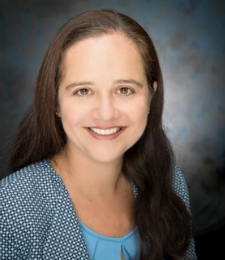
WHAT THIS MEANS, FROM LAUREN BURNETTE OF MESSER STRICKLER: While ultimately agreeing with the FCC’s proposed fine, Commissioner Michael O’Rielly expressed a concern well-known to collection professionals: that the FCC was interpreting the statute in an effort to sanction Rhodes for the nature and purpose of his calls rather than on any clear statutory violation. As one example, Commissioner O’Rielly pointed out that the Commission’s conclusion that spoofed calls are always known to harm the called party violated basic tenets of statutory interpretation, because such an assumption would render the “intent to harm” qualifier in the Truth in Caller ID Act meaningless. Commissioner O’Rielly stated that while “the individual subject to [the FCC’s Notice] engaged in vile discourse that should have no acceptance in American civil society,” the FCC’s obligation is to apply the statute as written, and not to levy punishment based solely on the nature of Rhodes’ message. This is an issue debt collectors grapple with every day, particularly in the context of the TCPA, where debt telephone systems incapable of storing or producing telephone numbers to be called using a random or sequential number generator are nonetheless considered automatic telephone dialing systems. The Commissioner’s remarks are particularly interesting given the U.S. Supreme Court’s recent decision to hear argument as to whether the TCPA’s restrictions on dialing equipment are content-based regulations incapable of withstanding strict scrutiny.
NDIL Judge Denies MTD Over Current Creditor Name in Letter
A District Court judge in Illinois has partially granted a defendant’s motion to dismiss after it was accused of violating the Fair Debt Collection Practices Act by not indicating in a letter that the plaintiff had 30 days to request the name and address of the original creditor, but denied a motion to dismiss a count that the defendant violated the FDCPA because it did not properly identify the creditor to whom the debt was owed. More details here.
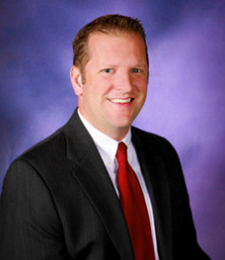
WHAT THIS MEANS, FROM BOYD GENTRY OF THE LAW OFFICE OF BOYD GENTRY: The Northern District of Illinois strikes again! Although there are a handful of issues in this case, two are repeat customers: (1) what is adequate disclosure of the name of the creditor to whom the debt is owed (1692g(a)), and (2) a debtor’s standing to challenge a letter which, arguably, does not clearly identify the name of the creditor to whom the debt is owed.
Here, the letter identified Kay Jewelers as the “Original Creditor” and DNF Associates LLC as the “current owner of the unpaid account.” The debtor/Plaintiff alleged that the letter failed to effectively identify the creditor to whom the debt is owed under 1692g(a)(2). Plaintiff further alleged that she “was confused . . . as to whom, exactly, the debt was owed” because the letter identified DNF Associates, LLC as the “current owner of the unpaid account” rather than the “current creditor”. (It should be noted that “current creditor” seems to be a favored clause in the Seventh Circuit.)
The defendants argued that the letter was compliant, and even if it wasn’t, the plaintiff had suffered no concrete harm and thus, lacked standing (Spokeo argument).
The district court found that 1692g(a) conferred substantive rights, and her allegation of confusion was sufficient. Turning to the merits, the district court held that because “there is no context in the body of the letter (or elsewhere) to suggest that DNF Associates, the “current owner of the unpaid account,” is also the current creditor”, the plaintiff has plausibly alleged that Defendants violated Section 1692g(a)(2) of the FDCPA by using ambiguous language to identify the current creditor. Nowhere in the letter was any entity identified with the term “current creditor.” While debt collectors may not need to use Section 1692g’s exact terms, “current creditor” seems to work just fine.
I’m thrilled to announce that Bedard Law Group is the new sponsor for the Compliance Digest. Bedard Law Group, P.C. – Compliance Support – Defense Litigation – Nationwide Complaint Management – Turnkey Speech Analytics. And Our New BLG360 Program – Your Low Monthly Retainer Compliance Solution. Visit www.bedardlawgroup.com, email John H. Bedard, Jr., or call (678) 253-1871.


